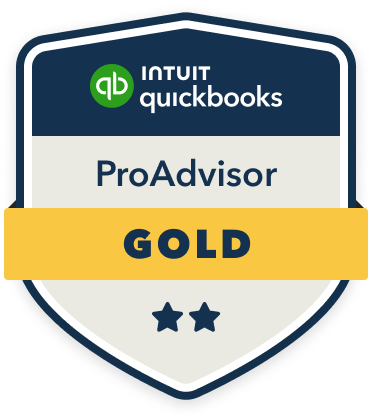Compliance Watchdog: Keeping Personal and Business Expenses Separate
Keeping personal and business expenses separate isn’t just good practice—it’s the frontline safeguard against compliance trouble for every small business owner. When personal purchases slip onto business accounts, or vice versa, you risk audits, lost deductions, and even penalties that can threaten your company’s future. Yet many entrepreneurs still believe a virtual assistant (VA) or basic bookkeeper can’t spot questionable expenses, leaving the door open for costly mistakes. In reality, with the right systems and expert support, you can ensure every dollar is accounted for and enjoy true peace of mind.
Why Separation Matters—And What’s at Stake
The IRS and state regulators demand clean records. Mixing expenses not only complicates accounting, but also jeopardizes your legal protections. If you’re ever audited, unclear boundaries could lead to denied deductions, penalties, or even loss of liability protection. As one compliance expert observes, “The single most common concern among small business owners is the fear that a simple mistake—like paying a personal bill from your business account—will trigger an audit or cost them thousands in missed tax savings.” This anxiety is well-founded and underscores the need for vigilance.
Core Steps for Bulletproof Separation
- Create a Separate Legal Entity: Forming an LLC, S Corp, or C Corp isn’t just about taxes—it’s the foundation for keeping personal and business finances distinct. This legal step clarifies ownership, liability, and reporting requirements.
- Obtain a Business Tax ID (EIN): An Employer Identification Number is essential for opening business accounts and filing taxes. Banks require it, and it ensures your business stands apart from you personally.
- Open Dedicated Bank and Credit Card Accounts: With your entity and EIN in place, open accounts exclusively for business activity. Every transaction on these accounts should relate to your company, not your personal life. Resist the urge to “borrow” funds or mix payments—even for seemingly minor expenses, like a coffee run.
- Pay Yourself a Salary: Treat your business like an employer: transfer funds to your personal account as a structured salary. This keeps the lines clear and prevents accidental co-mingling.
Expense Tracking: Your Compliance Watchdog
Robust expense tracking systems are your best defense. Manual receipt sorting is error-prone and stressful. Instead, leverage digital tools:
- QuickBooks Online and Mobile: Automatically syncs with business accounts, categorizes expenses, and flags duplicates. Monthly reports are generated with a click.
- Expensify, Shoeboxed, Wave Accounting: Automate receipt scanning and storage, making every expense searchable and audit-ready.
- Monefy and Wise Business Account: Provide visual expense charts and multi-currency support for international transactions.
Smart expense tracking can save $3,000–$8,000 annually in missed deductions and cut bookkeeping time by 75%. Every transaction is captured, categorized, and stored securely—no more shoeboxes or scrambling at tax time.
Fractional CFOs and QuickBooks ProAdvisors: The Expert Edge
If you think only a full-time accountant can spot questionable expenses, think again. A fractional CFO—an experienced finance professional who works with your company on a part-time basis—provides high-level oversight without the payroll burden. They review transactions, set up airtight policies, and ensure compliance with IRS regulations.
A QuickBooks ProAdvisor brings deep platform expertise, configuring your accounting software for maximum accuracy. They can build custom expense categories, automate reporting, and train your team to flag suspicious entries. Both roles are skilled at identifying risky transactions—like a personal purchase on a business card—before they become a problem.
Their involvement means you’re no longer reliant on a VA’s judgment alone. Instead, every expense undergoes professional scrutiny, and your books are prepared for any audit, funding application, or tax filing.
Challenging the VA Myth: Why Expertise Matters
It’s tempting to think a virtual assistant or general bookkeeper can’t catch subtle mistakes in expense categorization. While VAs are invaluable for many tasks, financial compliance requires specialized training and oversight. A fractional CFO or QuickBooks ProAdvisor doesn’t just “watch” your expenses—they build systems that prevent errors and provide ongoing education. They know the difference between a deductible lunch with a client and a non-deductible personal meal, and they ensure records are accurate, complete, and defensible.
Emotional Payoff: Sleep Easier, Grow Confidently
The true benefit isn’t just avoiding penalties—it’s peace of mind. When every purchase is tracked, categorized, and reviewed, you eliminate the fear of something “slipping through.” You can focus on growing your business, confident that your financial house is in order.
Practical Tips for Owners
- Physically separate receipts—keep folders for business and personal transactions.
- Ask for separate transactions at checkout if buying for both business and personal use.
- Conduct monthly or quarterly reviews to catch and correct accidental co-mingling.
- Train employees and co-owners on the rules and importance of separation.
Final Thoughts
Don’t let outdated beliefs or lack of oversight put your business at risk. By combining smart technology, sound legal structure, and expert financial guidance, you’ll build a compliance watchdog that protects your company and your peace of mind. The right support means every expense is accounted for—no matter who’s making the purchase—and nothing ever “slips through.”
By investing in professional financial guidance, you’re not just preparing for a sale. You’re creating peace of mind, stability, and options for yourself and those who matter most.
Don’t wait for “someday.” Start building your sellable business today.





